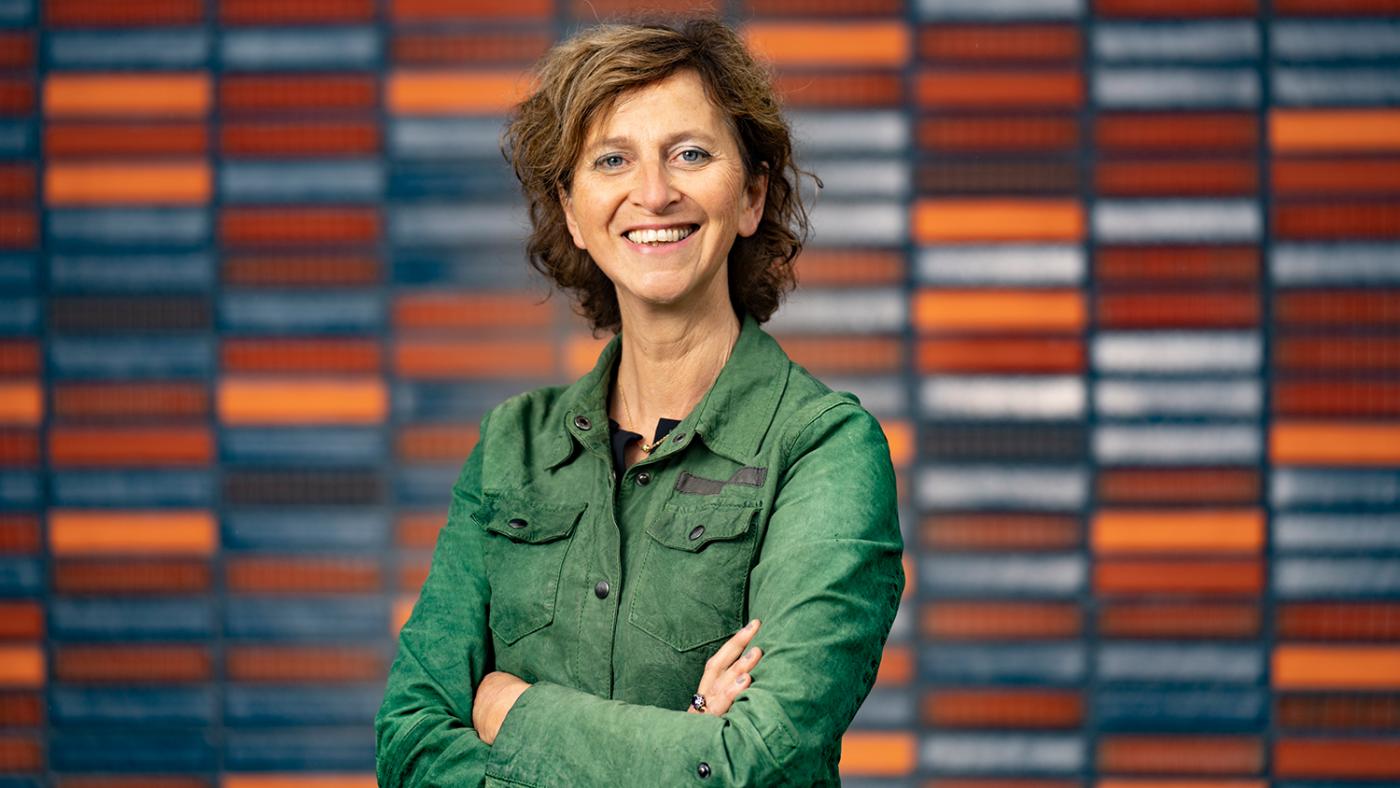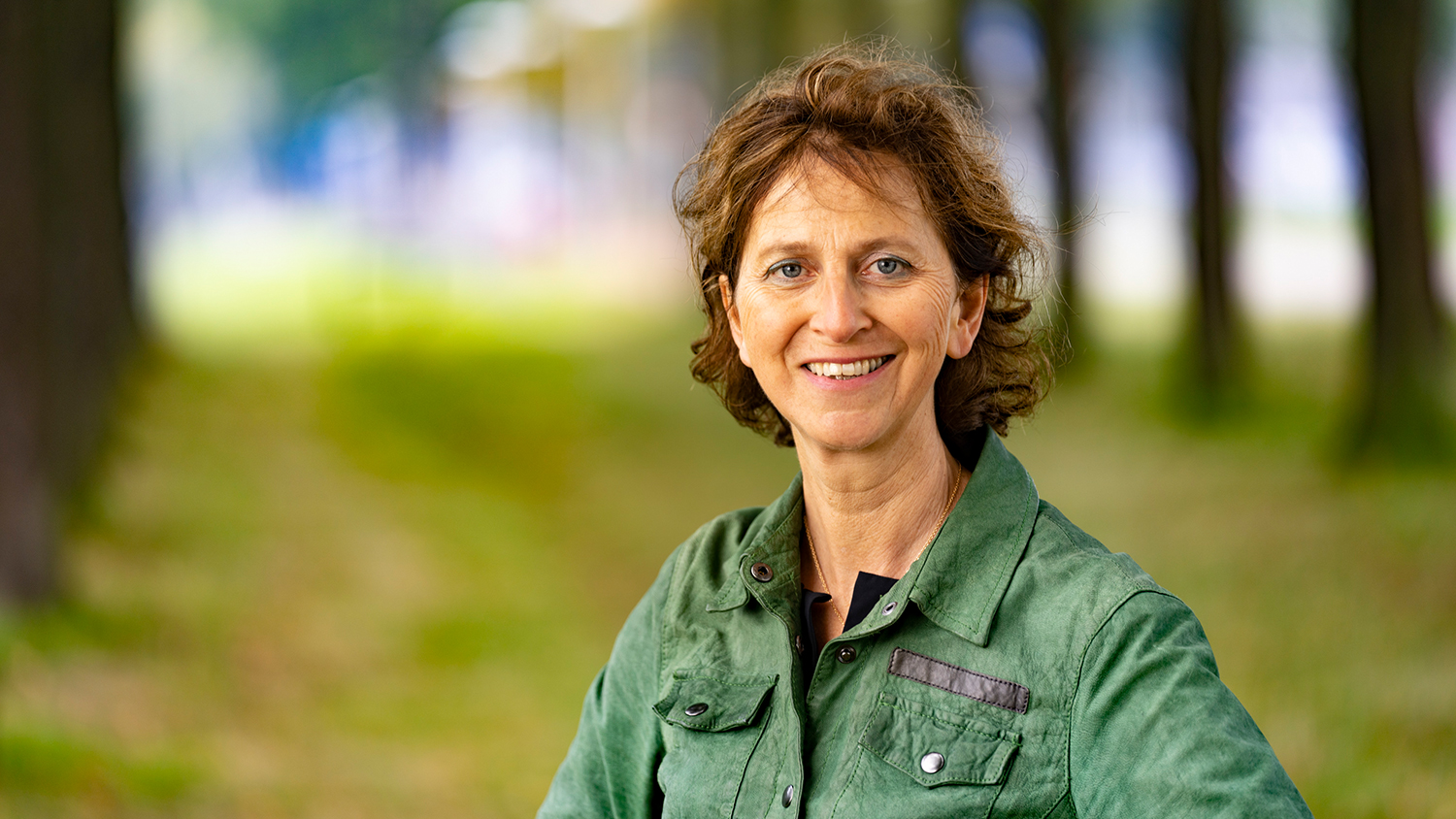‘Vaccinate against coronavirus in solidarity, not just for ourselves’

In November 2019, you were appointed professor of Vaccinology, and a month later, corona popped up. Your position became more important than ever. How does that feel?
She laughs. “I couldn’t have prepared myself for that, of course. I myself had always thought vaccinology was important, but the current attention from the public, which suddenly wants to know everything about scientific backgrounds of the different vaccines, makes it more relevant than ever.”
What does a vaccinologist do, exactly? Do you create vaccines?
“I’m not currently working on the development of a vaccine, but I’ve done so in the past. At the RIVM, I focus on research on the properties of immunity against pathogens. I measure, for instance, whether a person obtains the right immunity from a vaccination.
“As vaccinologist, I’m also interpreting lot. I’m following the worldwide development of vaccines. The concepts there are, and how they’re being developed. I try to answer those types of questions within the RIVM, and I advise the government about these things.”
And what are the differences between the Covid-19 vaccines?
“More than 180 vaccines are being developed. There are some very big differences between the designs. One injects a piece of coding – mRNA – for the virus’ protein, after which the body first develops viral proteins and then antibodies against them. But in China, for instance, they’re also working on vaccines of the type Whole Inactivated Virus Vaccine, which means you’re injected with the whole, inactive virus. You can imagine that your body gets a lot more to produce immunity against, and that this immunity may also remain in your body’s immunological memory for a longer time.
“Right now, there are nine vaccines in the final phase of the development process: phase 3. In that phase, a vaccine is tested on 10,000 to 50,000 people. A lot of work has to be done before reaching phase 3, and if these final, large-scale studies show that the vaccine is safe and protects against Covid-19, it’s a matter of waiting for approval.”
How well do the vaccine developers work together?
“You’d want to see that all knowledge, testing facilities, and production capacity are brought together and then shared among everyone. Unfortunately, that’s not how it works, and aside from the transparency, there’s also a lot of competition. So much comes into play in taking a vaccine from the pre-clinical phase (researchers coming up with the concept, ed.) to the clinical phase, which requires a lot of money and expertise.
“However, a lot of information is being shared. While the studies are still ongoing, reports are being shared about how they’re going. It’s science cooking – we’re all seeing it while it’s happening. Manufacturer Janssen, in the Netherlands, is lagging a little behind Oxford, and is therefore looking over its shoulder. Normally, the development of a vaccine takes around 15 years. The world record is at 5 years. Now, we’re trying to realise this in a year and a half, and that’s extraordinary.
“Another unprecedented aspect is that all large pharmaceutical companies have made a joint statement to ensure the public that they’re doing all they can to make the vaccines as safe as possible. There’s a lot of pressure on them from politics to market a vaccine as quickly as possible, so there are a lot of questions about how safe it’ll be, if things are going so fast.”
And what vaccine will the Netherlands get?
“The Netherlands, along with six other EU member states, has bet on six vaccines. If a vaccine is marketed, the Netherlands can get a share of it. It’s possible only one of these will make it to the market, or perhaps none. The European Commission is in charge of the negotiations with the companies; the Netherlands is assisting in that. The Netherlands can also ask questions through the Commission, or refuse to participate in a deal with a certain vaccine manufacturer.”
Is a vaccine the only way to get out of this pandemic?
“Yes, I think so. You can see countries are struggling. They’re looking at ways to slowly give society more space, and resume economic activities, without worsening the pandemic. But that accelerating and braking, that’s incredibly difficult to do safely. I think a vaccine is the only way to give large groups a certain immunity.”
Speaking of safety, the medical journal The Lancet says a moderately effective vaccine could worsen the pandemic. How do you view the developments in Russia and China, where they’re saying they’re already injecting many people with their vaccines?
“A government can give a certain status to a vaccine, as is happening there, despite the fact that that vaccine hasn’t been through all the steps. Russia quickly stated that they had a vaccine, but it had only been tested on 75 people. Administering a vaccine that hasn’t been tested well to a population isn’t sensible, but that isn’t being done, yet.
“It’s also about politics: east versus west arm-wrestling. But I’m not sceptical about the vaccine itself. There’s a renowned institution in Russia, and their vaccine has now reached phase 3, with approval from the World Health Organisation. The same goes for China. They just need to be more transparent in terms of data access for the rest of the world.”
Is it ethically responsible to market a vaccine of which the long-term side effects are still unknown?
“Hmm. I think that happens quite often, actually. What are long-term side effects? Do you have to monitor the clinical testing phase for 5 years? We’re not doing that now, either. That’s why phase 4 exists, when the manufacturer bears the responsibility of analysing the way the vaccine works in the field.”
But isn’t it too late by then?
“By receiving a vaccine, you take a small risk in that rare, long-term side effects aren’t fully known yet. You sign up for that, really, but with the agreement that the manufacturer is required to do long-term monitoring. Whether that’s ethical? If there’s a need for vaccines, which is the case with infectious diseases like Ebola or Covid-19, I think that all of us have agreed that this is a part of it when you want to protect people with vaccines.”
The testing phase of the Oxford vaccine was paused for six days back in September, because a test subject had been diagnosed with (according to rumours) inflammation of the spinal cord. How can the researchers be sure that the inflammation wasn’t caused by the vaccine?
“I can’t answer that. They haven’t been transparent about it. I think it’s a coincidence, myself. The vaccine was tested on 50,000 people. If one or two of them get that inflammation, that’s no more than would happen in the normal population.
“The moment a Serious Adverse Event happens, as it’s called, an independent group of researchers comes to check what happened. They decide whether or not the study can continue.”
But in the US, the Oxford tests are the only ones that haven’t started up again…
“Yes, that too isn’t entirely clear. I can imagine that the American FDA (Food and Drug Administration) wants to check the incident itself, and that that’s causing it to take a little longer. But again, this isn’t transparent either, and that’s a point of criticism.”
How long does the Oxford vaccine work for?
“There aren’t any true predictions on that yet. Perhaps the first vaccines won’t be top of the bill yet, but 50 percent effective, for example. That will prevent 50 percent of infections. That’s already quite a lot, but not the 80 percent you’d prefer to see.
“The sustainability of a vaccine depends on the human immunity and the virus itself. How good is the immunological memory that the vaccine activates? A lot is still unknown about this. Moreover, the virus can change. If that’s a slow process, immunity will be effective for longer. With the vaccines, we mostly target the spike protein. If that changes, you’re not protected for long, and you may have to be vaccinated annually. But I think for Covid-19, it’ll be a bit longer. The virus isn’t changing that fast.”
When do you think the first vaccine will be ready for the Dutch market?
“If one of the frontrunners turns out well, you can expect the first supply of a share of Dutch acquisitions in the first quarter of 2021. Expect a distribution key to be used for the vaccines, established by the Health Council. But in my oration, I estimated that the summer of 2021 is more realistic.”
Lastly: I’m young and healthy, and expect that I can get through corona with mild symptoms only. Should I get vaccinated?
“We’re going to hear this discussion a lot. I believe in group solidarity in this case, and group immunity, to get rid of the virus. It’s about transmission routes: the fewer routes there are, the smaller the chance of infection in vulnerable people. You can get vaccinated for yourself, but also for others. And that’ll be a new approach to vaccinations. So far, we’ve been vaccinating for ourselves. Now, we’re seeing that others – the at-risk groups – are the victims of this virus. But if you want to get rid of this virus, you need group immunity. I think it’s a beautiful challenge to explain that to people.”

Is professor of Vaccinology at Utrecht University at the faculty of Veterinary Medicine
Advises the government about Covid-19 vaccines
Is immunologist at the RIVM
Graduated as medical biologist at Utrecht University in 1986
Obtained her PhD from Leiden University in 1990 with a dissertation about transplantation immunology
Thinks it’s special and fun that vaccine developer Janssen is located in the Netherlands, and performs tests in Utrecht
Organised a symposium about Covid-19 vaccines last week
Is curious how students feel about Covid-19 vaccines and group solidarity, and wants to start a dialogue.